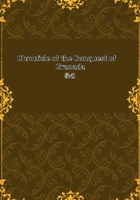
第58章
The marques of Cadiz advanced with his little army in the dead of the night, marching silently into the deep and dark defiles of the mountains, and stealing up the ravines which extended to the walls of the town. Their approach was so noiseless that the Moorish sentinels upon the walls heard not a voice or a footfall. The marques was accompanied by his old escalador, Ortega de Prado, who had distinguished himself at the scaling of Alhama. This hardy veteran was stationed, with ten men furnished with scaling-ladders, in a cavity among the rocks close to the walls. At a little distance seventy men were hid in a ravine, to be at hand to second him when he should have fixed his ladders. The rest of the troops were concealed in another ravine commanding a fair approach to the gate of the fortress. A shrewd and wary adalid, well acquainted with the place, was appointed to give signals, and so stationed that he could be seen by the various parties in ambush, but not by the garrison.
By orders of the marques a small body of light cavalry passed along the glen, and, turning round a point of rock, showed themselves before the town: they[6]skirred the fields almost to the gates, as if by way of bravado and to defy the garrison to a skirmish. The Moors were not slow in replying to it. About seventy horse and a number of foot who had guarded the walls sallied forth impetuously, thinking to make easy prey of these insolent marauders. The Christian horsemen fled for the ravine; the Moors pursued them down the hill, until they heard a great shouting and tumult behind them. Looking round toward the town, they beheld a scaling party mounting the walls sword in hand. Wheeling about, they galloped for the gate: the marques of Cadiz and Luis Fernandez Puerto Carrero rushed forth at the same time with their ambuscade, and endeavored to cut them off, but the Moors succeeded in throwing themselves within the walls.
While Puerto Carrero stormed at the gate the marques put spurs to his horse and galloped to the support of Ortega de Prado and his scaling party. He arrived at a moment of imminent peril, when the party was assailed by fifty Moors armed with cuirasses and lances, who were on the point of thrusting them from the walls. The marques sprang from his horse, mounted a ladder sword in hand, followed by a number of his troops, and made a vigorous attack upon the enemy.*
They were soon driven from the walls, and the gates and towers remained in possession of the Christians. The Moors defended themselves for a short time in the streets, but at length took refuge in the castle, the walls of which were strong and capable of holding out until relief should arrive. The marques had no desire to carry on a siege, and he had not provisions sufficient for many prisoners; he granted them, therefore, favorable terms. They were permitted, on leaving their arms behind them, to march out with as much of their effects as they could carry, and it was stipulated that they should pass over to Barbary. The marques remained in the place until both town and castle were put in a perfect state of defence and strongly garrisoned.
*Cura de los Palacios, c. 68.
Thus did Zahara return once more in possession of the Christians, to the great confusion of old Muley Abul Hassan, who, having paid the penalty of his ill-timed violence, was now deprived of its vaunted fruits. The Castilian sovereigns were so gratified by this achievement of the valiant Ponce de Leon that they authorized him thenceforth to entitle himself duke of Cadiz and marques of Zahara. The warrior, however, was so proud of the original title under which he had so often signalized himself that he gave it the precedence, and always signed himself marques, duke of Cadiz. As the reader may have acquired the same predilection, we shall continue to call him by his ancient title.